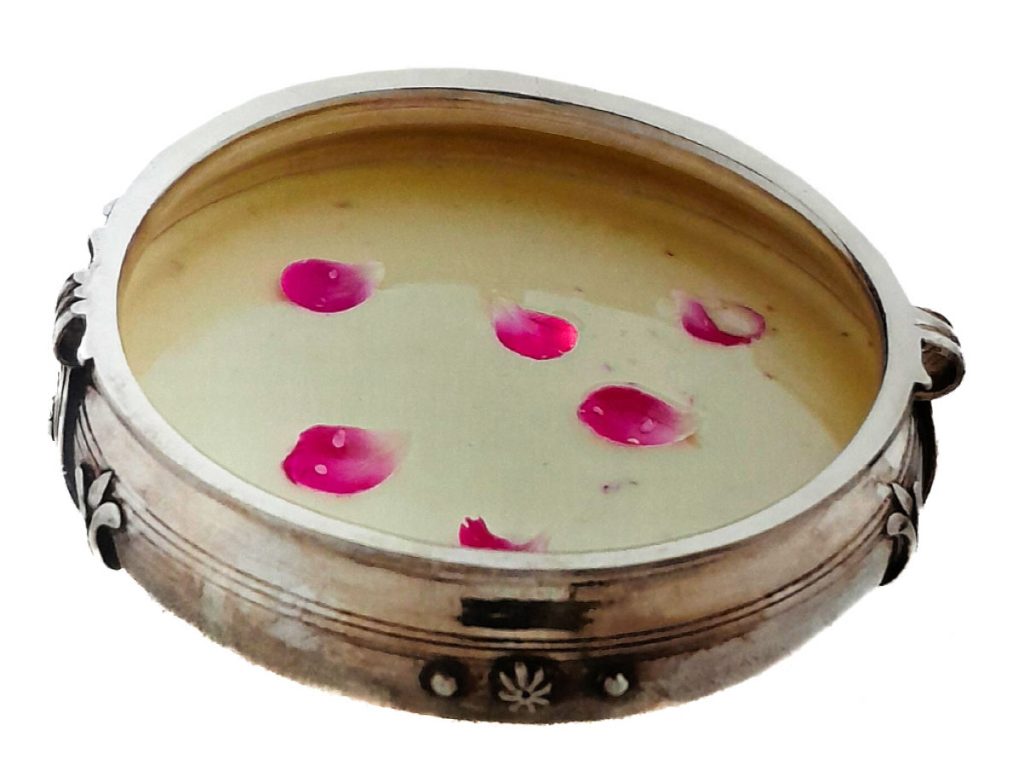
Exploring a vegetarian lifestyle can be a delightful journey, and Pure Vegetarian by Prema Srinivasan is the perfect companion for beginners and seasoned home cooks. With its colourful, inventive recipes, this cookbook highlights the variety and richness of vegetarian cuisine and provides a fresh perspective of how simple ingredients can be transformed into nourishing meals. Whether you’re looking to experiment with new flavours or searching for everyday staples, this book promises to inspire and delight.
___________________________________________

Pure Vegetarian — Sacred and Traditional Recipes from South India
Author : Prema Srinivasan
Publishers : Harper Collins
Price : Rs.1,299
___________________________________________
Reading this book took me on a flashback to when I first began cooking after moving into my marital home. My parents-in-law had left for the US shortly after I arrived, and I found myself suddenly in charge of the kitchen — a daunting task for someone who didn’t even know how to cook rice in a pressure cooker! Thankfully my mother had thoughtfully packed her handwritten recipe notes and another cookbook by a popular author named Meenakshi Ammal, which has long been a staple and a lifesaver for many South Indian brides.
Prema’s book is just as valuable as Meenakshi Ammal’s, and a must-have for all those who enjoy cooking. It offers a range of recipes from everyday essentials like sambhar, rasam and chutneys, to special dishes and sweets such as jalebi, basundi, malpuva and a variety of kheers, and pickles too. The book’s standout feature is its array of recipes that will keep you from repeating dishes for weeks. The sheer variety in vegetarian cuisine is astounding, dispelling the notion that South Indian cooking is limited to sambhar, dosai, idli and rasam. In fact, the book includes 14 different types of rasam, including the unique rose petal, and buttermilk rasams.

Have you ever tasted jackfruit idli (palapazha idli), orange-flavoured poha or pineapple curry? Prema has included these and some long-forgotten dishes in her book. I was particularly impressed with bittergourd sambhar (pavakkai pittlai in Tamil) and Himachal Pradesh’s madra (a chickpea-curd gravy). Vegetarian specialities from various regions of India are also included. The brinjal rasavangi was a great hit at my home. Green soup with yuba slivers (made from soy milk), rose petal kheer and green papaya salad are few other interesting recipes.
What adds even more charm to Pure Vegetarian are the cultural anecdotes, historical titbits and photographs of the food, and some lesser-known utensils, which will evoke memories in the reader. I was so reminded of my grandmother’s home where the entire house will be filled with the heavenly aroma of rasam being cooked in an eeya chombu (tin pot). The rasam is then transferred into a stainless steel vessel, as longer storage time can increase toxicities due to the reaction of the acidic content in the food with tin. Cooking in a tin pot is a bit tricky; if left unattended it will melt.

The book also features recipes of sacred offerings made in temples across India, such as Terali Appam, offered to Goddess Lakshmi. It is a fragrant combination of rice flour, bananas and jaggery, spread on a cinnamon leaf, and steamed. Other temple offerings like Jagannathji ka peda, Ambalapuzha paal payasam (kheer made with rice and milk, offered to Lord Krishna at Ambalapuzha in Kerala) are equally fascinating.

The author has included miscellaneous cooking tips too. While boiling milk, add little water to the pan before pouring in the milk. This prevents the milk from sticking to the bottom of the pan; for green chillies to stay fresh for long, remove the stems before storing; soaking overripe tomatoes in salted water for eight hours will firm them up.
With its clear, step-by-step instructions and captivating content, Pure Vegetarian is more than just a cookbook — it’s an invitation to explore, experiment and savour the rich heritage of vegetarian cuisine.






